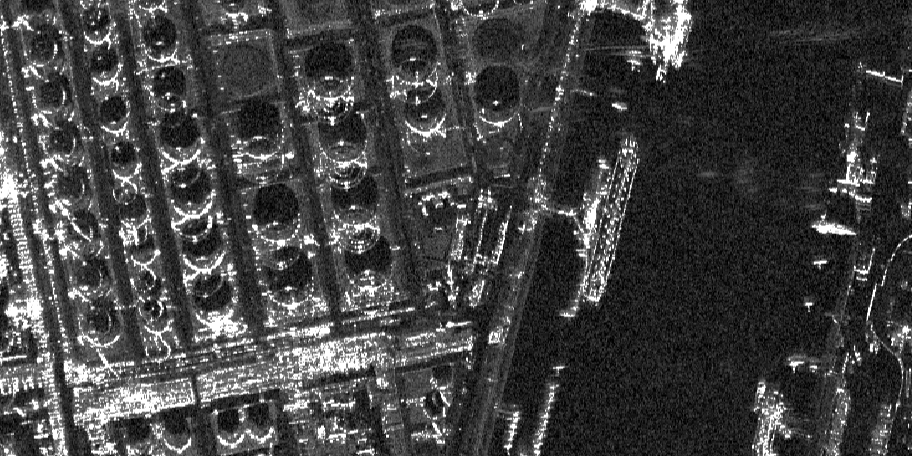AWS Public Sector Blog
Tag: Registry of Open Data on AWS
Crowdsourcing a cure for COVID-19: How the cloud and Folding@home are accelerating research and drug discovery
Today more than 200,000 volunteers around the world are helping accelerate research toward COVID-19 therapies—by walking away from their computers. That’s because of a concept called distributed computing, which allows anyone with a home computer, laptop, or virtual machine to contribute computing power to a common cause. This month, nonprofit Folding@home has started sharing one of the world’s largest public protein simulation databases as an AWS Open Data Set so that researchers around the world can easily access this data to speed up the search for therapies for COVID-19.
50 years of innovation: How open data is supporting NOAA’s “science, service, and stewardship” mission
This month, the National Oceanic and Atmospheric Administration (NOAA) celebrates 50 years of “science, service, and stewardship.” Over the past five decades, NOAA has demonstrated its ability to push the boundaries of technological innovation to collect and understand data, as well as share that knowledge and information with others. AWS supports NOAA’s mission, in particular by providing public access to the agency’s environmental datasets since 2015 through the Registry of Open Data on AWS.
Addressing environmental challenges with the AWS Cloud
Azavea believes in the power of geospatial technology to improve communities and the planet. Azavea has been exploring the power of this technology to help their clients to answer complex questions in a wide range of domains from urban ecosystems, infrastructure planning, and economic development to water, energy, and climate change. As part of the Amazon Sustainability Data Initiative (ASDI), we invited Jessica Cahail, product manager at Azavea, to share how her organization is using AWS and open data to develop tools that help users address environmental challenges and deliver knowledge to support decision making.
Building cloud-based community knowledge about machine learning to predict and understand extreme weather
The National Center for Atmospheric Research (NCAR) is a federally funded research and development center sponsored by the National Science Foundation. It engages in large-scale Earth system science research projects in collaboration with the broader university community. NCAR hosts visitors from around the world, develops community models including the Community Earth System Model and the Weather Research and Forecasting Model, and maintains supercomputers, observational systems, and aircraft to support further study on the how the planet works. As part of the Amazon Sustainability Data Initiative, we invited Dr. David John Gagne, machine learning (ML) scientist at NCAR, to share how open data and machine learning on AWS are impacting the way we predict and understand extreme weather.
Taking COVID in STRIDES: The National Center for Biotechnology Information makes coronavirus genomic data available on AWS
AWS and the National Institutes of Health’s (NIH) National Center for Biotechnology Information (NCBI) announced the creation of the Coronavirus Genome Sequence Dataset to support COVID-19 research. The dataset is hosted by the AWS Open Data Sponsorship Program and accessible on the Registry of Open Data on AWS, providing researchers quick and easy access to coronavirus sequence data at no cost for use in their COVID-19 research.
Improving our knowledge about the oceans by providing cloud-based access to large datasets
As a physical oceanographer focused on remote sensing, Dr. Chelle Gentemann, senior scientist at Farallon Institute, has worked for over 20 years on retrievals of ocean temperature from space. She uses measurements of sea surface temperature from satellites to understand how the ocean impacts our lives. Chelle’s work requires analysis of large volumes of data, which requires access to large data storage and computational resources. Although most large research institutions can secure those IT resources, that is not the case for smaller organizations or underserved communities around the world. As part of the Amazon Sustainability Data Initiative, we invited Dr. Gentemann to share her perspective on the value of hosting high-resolution climate data on AWS.
Stanford researchers accelerate autism research by sharing genomic data in the cloud
In 2014, the Wall Lab at Stanford University sought to answer one of the most pressing questions in neuroscience: What genes influence autism spectrum disorder (ASD)? According to the Centers for Disease Control (CDC), this neurodevelopmental disorder affects roughly one in 54 children in America and is on the rise—nearly tripling since 1992. In the lab’s study of ASD genetics, they chose the cloud—and a unique experimental approach—to speed the time to science.
How artificial intelligence helps monitor forest dryness
Forest wildfire risk is increasing in the western United States. In the past five decades, large wildfire frequency and the area destroyed have risen by more than four and six times, respectively. The increased risk posed by wildfires has prompted scientists to try to assess wildfire risk to help inform whether to move people to safety before disastrous wildfires occur.
Capella and SpaceNet deliver unique views of Earth with machine learning on AWS
The breadth of challenges that can be addressed by overhead imagery is broad and continues to grow as new and improved sensors are deployed. To make the best use of this data, you need to have high-quality training data—data that you know is true (often called ground truth data) so that your algorithms can learn from it. A lack of this high-quality labeled training data continues to impede progress in many areas of remote sensing analytics, including machine learning. Two of the SpaceNet collaborators, Capella Space and AWS, are providing access to a unique dataset to help foster innovation in geospatial-based artificial intelligence. Learn more about Earth observation data, the SpaceNet 6 Challenge, and available datasets.
Himawari-8: Enabling access to key weather data
Last December, AWS announced the expansion of its collaboration with the U.S. NOAA to make environmental data easier to access and use through the Big Data Program. Users can now access new, authoritative NOAA data on AWS without needing to download and store their own copies. Researchers and entrepreneurs can deploy compute resources on-demand in the cloud, perform analysis quickly and efficiently, and save costs by letting researchers ask more questions and experiment more easily. One of the foundational datasets now available on AWS through this collaboration is Himawari-8, the Japan Meteorological Agency’s satellite dataset.









